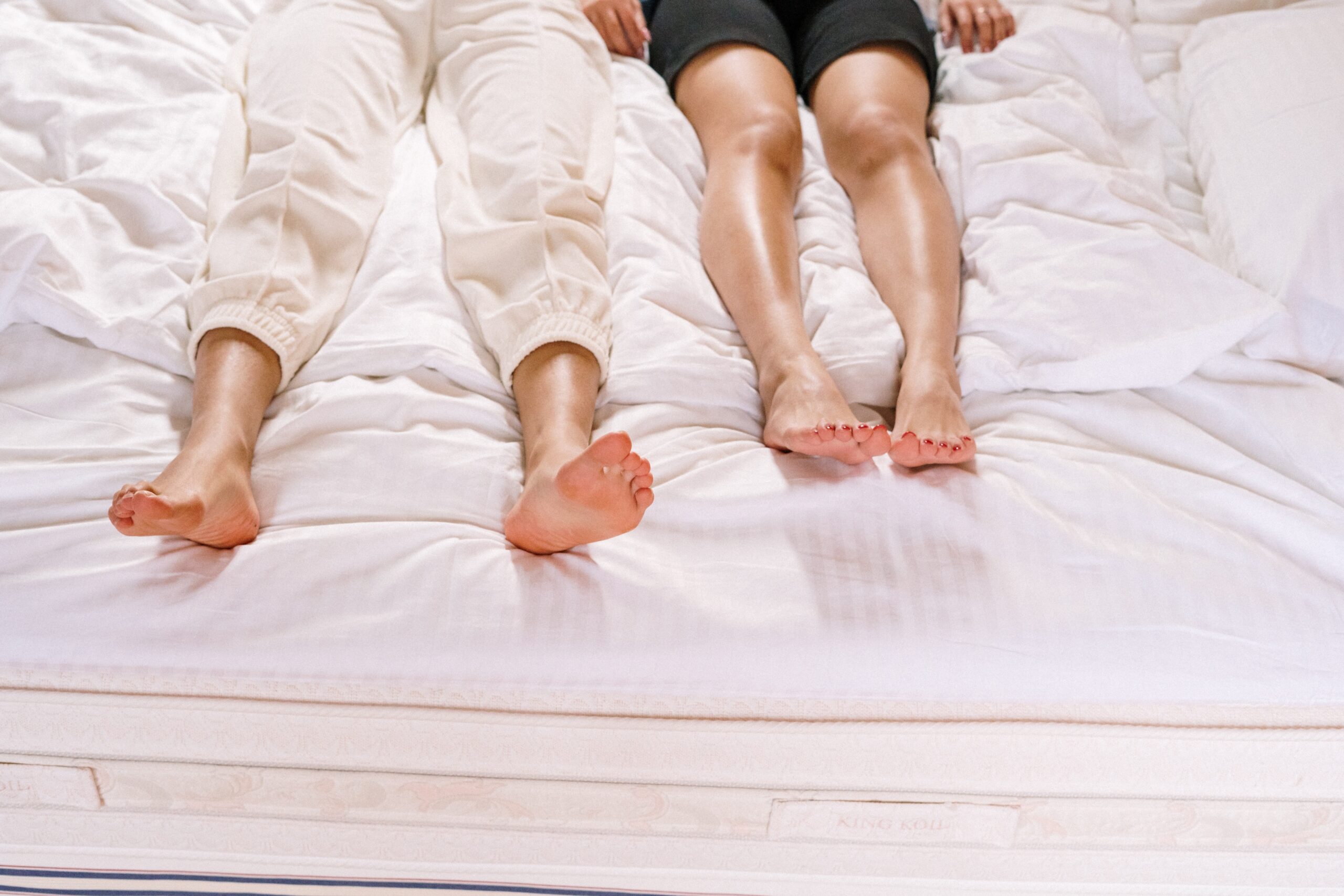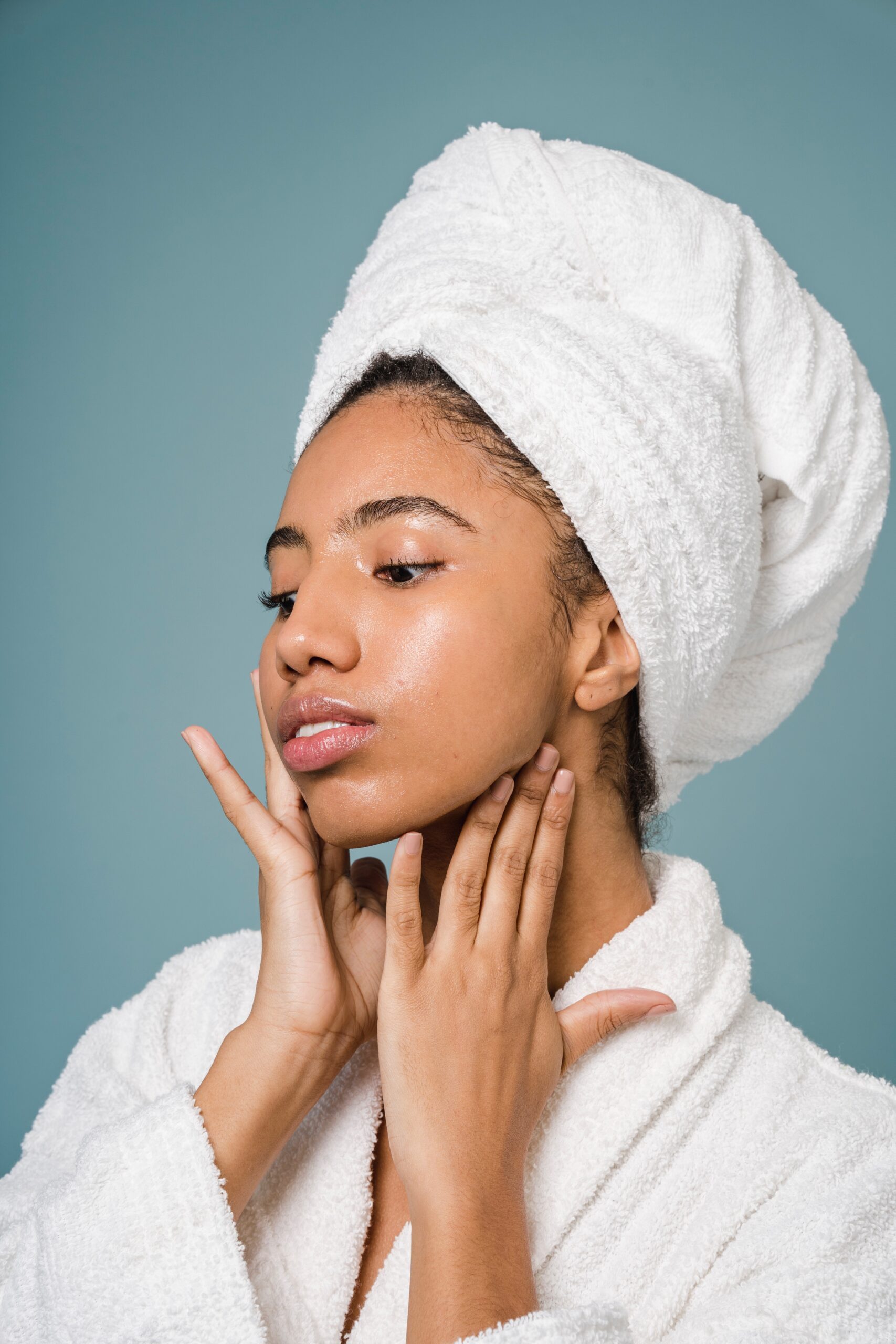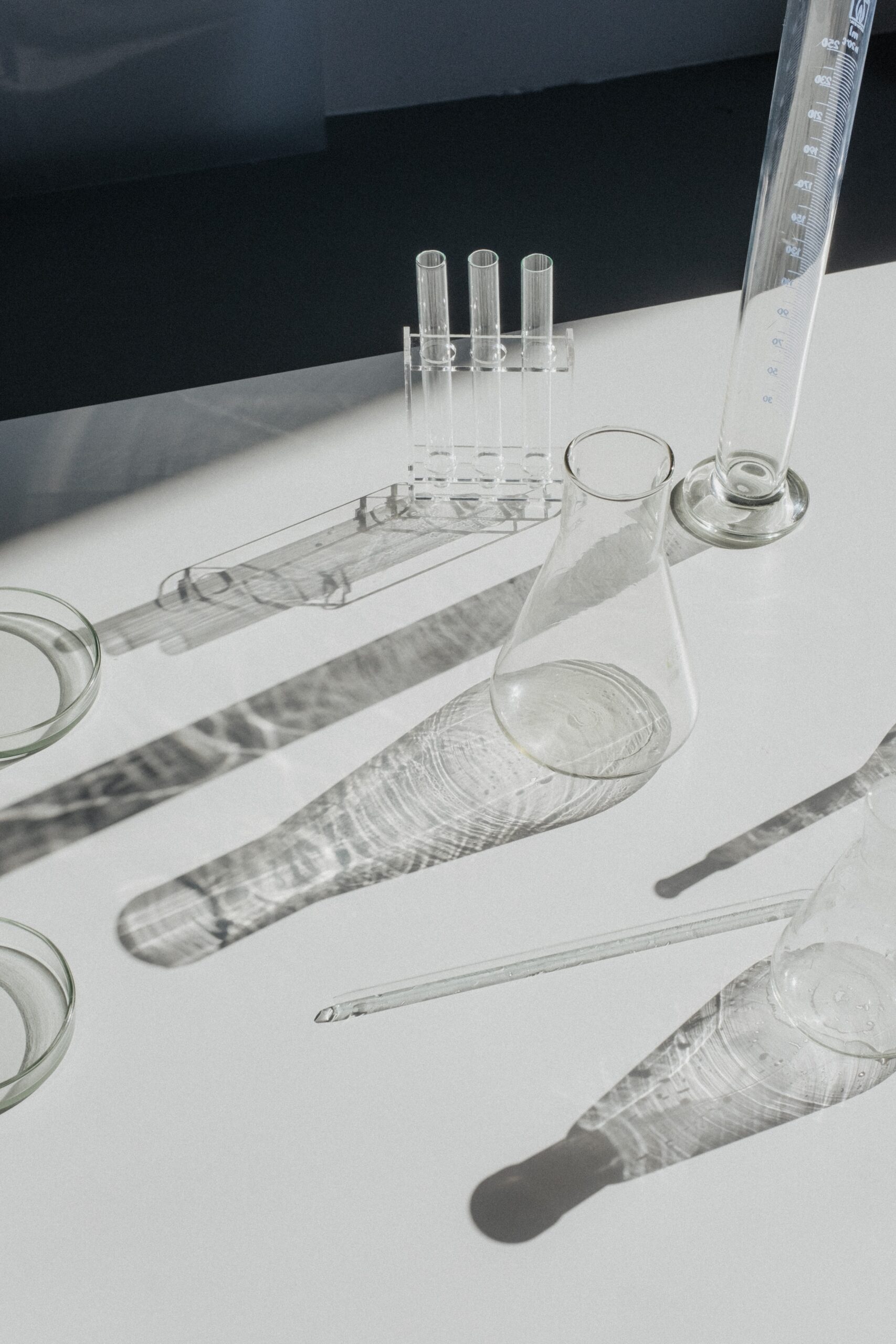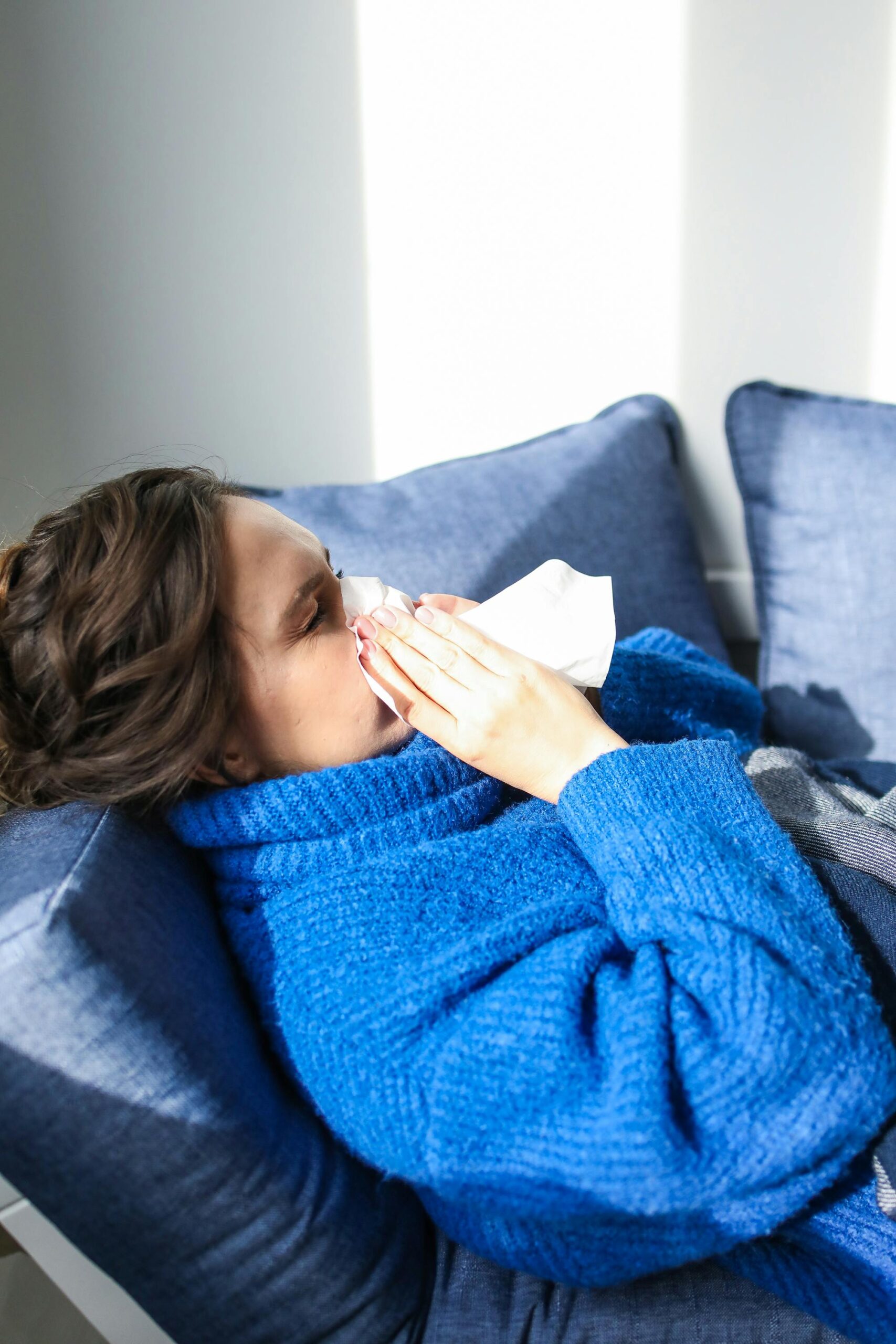Sex drive, or libido, is one of the many uncomfortable topics that I like to make comfortable for my clients. It’s something that millions of both men and women struggle with, but are too embarrassed, ashamed, or simply unaware to pinpoint as a problem. In my practice, I see too many men turn to prescription pills – while too many women just accept that this is their reality and that it’s not a big deal. I hate to break it to you – but neither of those approaches are good solutions; it’s important to address the reasons why libido is low. Having a low sex drive is a red flag that there is something going on with your health that needs to be addressed. Also, sex is a health-supporting activity. Intimate touch and orgasming boosts oxytocin, AKA the “love hormone.” In turn, oxytocin induces numerous positive physiological effects, such as: promoting calmness, managing appetite, improving immunity, reducing pain, supporting lean tissue growth and repair – and more.
In this article, I’m going to discuss three very common potential root causes of your low sex drive. However, there are plenty of other variables that can cause libido to plummet; I’ll briefly touch on them at the end. Also, I don’t know you, your body, or your story – so I recommend working with a professional at Birchwell who takes the time to understand your health from the inside out. Using advanced lab testing, nutrition, supplements, and lifestyle changes, we address why your libido is low in the first place, instead of simply medicating or masking your symptoms. You gain actionable, enjoyable strategies and a powerful understanding of your mind and body.
Interested in learning more? Learn more about our services here, or book a no-obligation discovery call here to chat with one of our practitioners and see if our functional health consulting is right for you.
1. You have nutrient deficiencies
Various nutrients are needed in order to have a healthy sex drive, so having nutrient deficiencies is one of the three most common reasons why libido is low. Poor nutrient status negatively impacts your thyroid, adrenals, gut and – most importantly here – sex hormones. Even if you eat a nourishing diet, it’s very hard to get all of the nutrients that you need from food alone for various reasons such as decreased quality of soil, increased human needs, impaired nutrient absorption (remember – you are not what you eat, you are what you digest and absorb).
The nutrients that I list here (aside from healthy fats) are minerals and fat-soluble vitamins – meaning that there is a risk of toxicity if levels become so high. That is why, as always, you should supplement according to your labs and under the guidance of a knowledgeable practitioner. My favorite labs for testing micronutrients are the NutrEval by Genova Diagnostics and the Micronutrient Panel by Vibrant America, both of which we offer at Birchwell.
- Zinc and magnesium. These minerals are super important for healthy testosterone levels, which are essential to libido (more on this soon). Zinc is needed for proper thyroid hormone production, conversion, and cell sensitivity. Meanwhile, magnesium helps with hundreds of bodily processes, including stabilizing blood sugar and mood.
- Vitamin D. Virtually every system in your body needs vitamin D to function. The conventional range for vitamin D is quite outdated and way too low; I like to see levels between 50-80 ng/mL. The best way to maintain good vitamin D is from the sun (bonus points because sunlight itself can help boost testosterone). If levels are low, though, supplementation is needed – ideally alongside vitamin K to help shuttle calcium into bones.
- Fat. Dietary fat is the building block of sex hormones. Make sure that you’re eating sufficient healthy fats such as avocados, coconut oil, olive oil, nuts and seeds. Specifically, incorporate cholesterol-containing fats like egg yolks. Omega-3s, found mostly in fatty fish (e.g. salmon, tuna, sardines) can also help lower inflammation, promoting overall health and consequently libido.
- Iron. Poor iron storage and utilization means poor oxygen status and thyroid function, which leads to low sex drive. When testing, always run a complete anemia panel: ferritin, iron, TIBC, transferrin, transferrin saturation, UIBC. The iron supplementation debate is a heated topic in the functional medicine space. If levels are extremely low, I sometimes will refer my patients out for injections. If that is neither an option nor is merited, we might supplement with iron bisglycinate – while optimizing vitamin A, vitamin C and copper, all of which are needed for proper iron absorption and recycling. Occasionally we can boost levels with food alone – or we need to work on gut healing first – it all depends on the clinical picture.
2. Your hormones are out of balance.
Low sex drive is almost always indicative of a hormonal imbalance, which is one of the three top reasons why libido is low. While most people immediately assume that the issue resides in low testosterone – and that is certainly a very common cause – there are other potential factors that need to be considered. Here are some of the to hormonal issues that I see driving low libido:
- Low testosterone. Optimal levels of testosterone are needed for both men and women to have a healthy sex drive. Low testosterone often gets missed because conventional ranges are too forgiving. Men should aim for total testosterone at 700-900 ng/dL and free testosterone at 150-224 pg/mL; women should have total testosterone at 45-65 ng/dL and free testosterone at 6-8.5 pg/dL. Men make their testosterone in the testes, while women rely on mostly the ovaries with help from the adrenal glands. Testosterone also comes from the conversion of DHEA, a stress hormone – so it’s important to check this, too, and correct if low. Some low-risk ways that you can boost testosterone include supplementing with maca root at high doses (around 5g), strength training (with heavy weights, if that’s safe and appropriate for you), and experimenting with cold showers (start with ten deep breaths at the end of your shower and work your way up).
- Low or high estrogen. We need estrogen in goldilocks amounts to have a healthy sex drive. I tend to see low estrogen in women correlated with peri or post menopause, childbirth and breastfeeding, insufficient body fat, nutrient deficiencies, hormonal birth control and chronic stress. In these cases, I like to use phytoestrogens such as black cohosh, isoflavones, red clover and/or fennel. Meanwhile, when I see high estrogen in either men or women, I often see over-aromatization from testosterone, inflammation, poor methylation, and/or overuse of endocrine-disrupting chemicals. Specifically, over-aromatization occurs when too much testosterone is converted in the liver into estrogen. Certain supplements like chrysin or damiana can help by acting as aromatase inhibitors, but they can make problems worse if you don’t need them. Additional estrogen metabolism and detox support such as DIM/I3C, sulforaphane, calcium-d-glucarate and/or NAC might be beneficial. I like to use the DUTCH test to assess estrogen metabolism and testosterone aromatization before adding any targeted supplementation.
- Low progesterone. Low progesterone is very commonly one of the reasons why libido is low that I see in my female clients. It often goes hand-in-hand with low estrogen but also can occur with high estrogen levels (known as estrogen dominance). I always recommend that my low progesterone ladies bump up their intake of dietary cholesterol – yes, I’m talking about eating more egg yolks, shrimp, beef, cheese, and even butter. This is because we need dietary cholesterol to make pregnenolone (AKA, the “mother hormone”), which is a direct precursor to progesterone. Depending on estrogen levels and the overall clinical picture, I also consider adding vitex (chaste tree), vitamin E, or vitamin B6. In very specific cases, bioidentical progesterone hormonal replacement therapy (HRT) might be a good fit.
- High insulin. Insulin is a hormone that, when wonky, can directly lead to all of the above. It really should be standard practice to always check fasting insulin alongside fasting glucose and hemoglobin A1C levels to assess both short and long-term blood sugar management (this is what I do with all of my patients, no matter what). Insulin resistance is linked with metabolic syndrome and/or PCOS and all of their not-so-sexy accompanying symptoms such as increased waistline, facial acne and body hair. While improving insulin sensitivity involves major nutrition interventions, I also find that a few supplements can really be supportive – particularly berberine, alpha lipoic acid and chromium.
3. Your adrenals need to heal.
Your adrenals are glands that make DHEA and other stress hormones, such as cortisol. Chronic stress can result in adrenal dysfunction, leading to high – and eventually low – levels of cortisol and/or DHEA. When your adrenals are off – everything is off – especially sex hormones, which can cause low sex drive as described above. Adrenal dysfunction correlates with numerous signs and symptoms, but the number one way that it can tank libido is simply by causing fatigue. As you can see, there are several ways why poor adrenal health is one of the reasons why libido is low.
Healing the adrenals can be an overwhelming and arduous undertaking. I like to make it clear to my clients that it is impossible and honestly, quite unfulfilling, to live a stress-free life. However, we all have a stress “bucket” that can only hold so much: emotional stress from difficult relationships, mental stress from a demanding workload, and physical stress from dieting, overtraining, inflammation, infection etc. Some of that stress is neither bad nor controllable, so we work on reducing the stressors that we can by adjusting our diet and lifestyle. Meanwhile, here are some quick strategies you can start implementing right away for additional support:
- Test. Conduct a 4-point adrenal test to assess your levels and pattern. This can help guide a more specific supplement, diet, and exercise protocol for you. I like the DUTCH Adrenal panel because it looks at cortisol patterns and metabolite measurements to give us a more accurate picture of total cortisol production, along with testing DHEA.
- Sleep. You don’t need me to tell you that sleeping 7-9 hours/night is a nonnegotiable aspect of health. Go to bed and wake up around the same time. Sleep like an oyster (cold, dark and quiet). Consider certain sleep supplements if merited; my favorites are magnesium glycinate 300-400mg and l-theanine 200-400mg.
- Caffeine. Stick to approximately 120-240mg of caffeine daily, depending on your size. Wake 90 minutes after waking up to have caffeine, and pair it with a meal. This will help prevent the caffeine jitters and/or afternoon crash (leading you to reach for more caffeine). Cut off caffeine consumption at least 8 hours before bed.
- Sunlight. Go outside and get sunlight on your eyes (without looking directly at the sun, of course) within 30-60 minutes of waking up to help kickstart that cortisol awakening response (CAR). Try to get as much sunlight as you can throughout the day and watch the sunset at night to establish your circadian rhythm. Check out Andrew Huberman, a neuroscientist at Stanford University, who discusses some fascinating and compelling research around the power of light to improve health.
- Supplement. Now that you got your test results back and you’ve already implemented the above lifestyle changes, we can consider supplementation. If DHEA levels are tanked, adding in a low-dose supplement (i.e. 5-10mg/day) can be an energy game changer (do not do this without professional guidance). For high cortisol levels, I like to use adaptogens such as ashwagandha and magnolia. With low cortisol, adrenal glandular (i.e. bovine cortex) is extremely beneficial. If lack of CAR is an issue, licorice root upon waking can help (caution if you have high blood pressure).
Other potential reasons why libido is low:
- Your thyroid is off. Your thyroid is your body’s master regulator, so when it is struggling – every system suffers, making it one of the reasons why libido is low. Also, symptoms of low thyroid function (AKA hypothyroidism) include fatigue, weight gain, and hair loss – all of which may also impact your desire to have sex. Some quick thyroid tips:
- Always run a full thyroid panel, including anti-TG, anti-TPO, free T3, free T4, reverse T3, T3, T4, and TSH. Most conventional doctors will only test TSH and maybe one additional marker – that is not sufficient because it doesn’t tell us anything about the way your thyroid hormones are actually being produced, converted, and utilized by the cells.
- Your thyroid needs several nutrients to function properly. Two major ones are iodine and selenium. You can get iodine in the diet through iodized salt or if you want to be extra fancy, seaweed. A great way to get adequate selenium is eating two brazil nuts daily – bonus points if you want to eat bison, another rich source.
- Closely monitor and adjust your thyroid medications as needed. For example, many people have been prescribed levothyroxine, which is just T4. However, if you are not properly converting the T4 into active T3 – and then getting that T3 into your cells – your thyroid function won’t improve, and can potentially worsen.
- Your gut needs support. Similar to the thyroid, your gut can affect nearly every cell in your body. Your gut and hormones are closely intertwined in a lovely complex feedback loop. Also, having digestive issues (i.e. bloating, gas, etc.) will likely interfere with your ability to get in the mood for intimacy. If you suffer from any digestive problems, I highly recommend working with a gut health professional (like one at Birchwell) so that your GI dysfunction is no longer one of many reasons why libido is low.
- Your drugs are creating issues. Listen – I can’t tell you to stop taking your medications. However, if you are on any prescription pills, I encourage you to explore the possibility of them being reasons why libido is low. Don’t be afraid to talk to your doctor about alternative options, or explore more holistic approaches. Three common medications that I see lower sex drive include hormonal birth control, antidepressants or statins. All three of these medications have an alternative, integrative solutions that can be extremely effective.
Final thoughts
As you can already tell, an integrative approach to addressing the reasons why libido is low a complex undertaking. Your nutrients, hormones, and adrenals are all interconnected. Also, related problems are often missed by conventional testing and lab ranges. Comprehensive blood, urine, and sometimes stool and/or saliva testing is needed alongside an expert eye who can pick apart the results with a fine-toothed comb and come up with an effective, actionable plan to correct any imbalances.
At Birchwell – we do just that. We team you up with a Registered Dietitian who specializes in functional medicine. They take the time to understand your health from the inside out using advanced lab testing, nutrition, supplements, and lifestyle changes.
Interested in learning more? Book a non-obligation, complimentary discovery call to chat with one of our practitioners and see if our functional health consulting is right for you.








